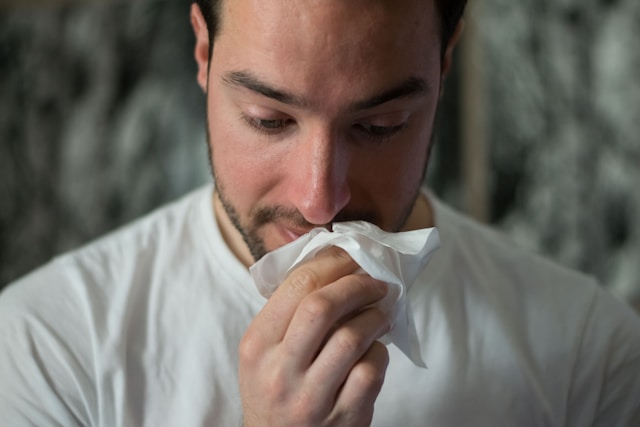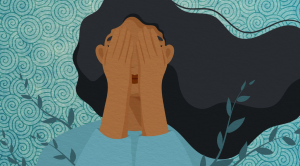Understand the Different Common Mouth Sores
These circumstances can manifest into various types of sores differing from each other:
Canker Sores (Aphthous Ulcers)
Perhaps the most common oral disorder, canker sores are typically small round or oval lesions with a white or yellow center and a distinct red border. You usually find them somewhere inside the mouth: lips, cheeks, under the tongue, or on the soft palate. Unlike cold sores, canker sores have never been considered contagious, and are thought to be initiated by stress, minor injuries to the audios (such as biting your cheek), acidic or spicy foods, nutritional deficiencies (e.g., B12, iron, folate), or hormonal changes.
Cold Sores (Fever Blisters)
They are highly contagious fluid-filled blisters that usually appear in clusters on or around the lips but occasionally appear on the gums and hard palate. Caused by the Herpes Simplex Virus Type 1 (HSV-1), cold sores may be triggered by sun exposure, stress, fever, or a weakened immune system. The blisters break and crust and then heal.
Being Sores Caused By Gingivitis and Periodontal Disease
Plaque and tartar may injure the gum and further produce inflammation of the gums-the degree of gingivitis that can show as red, swollen, or bleeding gums. Late stages (periodontitis) can produce painful ulcers with deep pockets of infection along the gum line.
Traumatic Sores
These sores are usually irregular in shape and happen because of physical injury to the mouth tissues. Accidental biting of the cheek or tongue is among the most frequently reported incidents; there are others, however, such as irritation from a sharp tooth edge or a broken filling, friction from ill-fitting dentures, or even brushing the gingivae or mucosa too hard.
Other Sores
Less common causes include fungal infections (such as thrush, which appears as creamy white lesions), allergic reactions to some foods or dental products, or even systemic diseases (such as inflammatory bowel disease).
When to See a Doctor
Most minor mouth sores will heal on their own within 7 to 14 days. However, when the following signs present, go for a dental checkup:
Persisting sores: Mouth sores which do not heal after 2 weeks should be examined by a dentist who will exclude serious conditions like oral cancer.
Unbearable pain or Exceptions in size: An unusually large sore which is highly painful or rapidly spreading needs attention immediately.
Difficulty: Any sore causing an extreme amount of difficulty to eat, swallow, or talk.
Recurrence: Very frequent sores or severe recurrent sores.
Systemic symptoms: When sores come together with Fever, rash, headache, or general feeling of being unwell.
Signs of Infection: Increasing redness, swelling, pus, or an infection quickly spreading around the sore.
Do not wait too long before calling emergency dentists for sudden unbearable pain, uncontrollable bleeding, or a rapidly worsening condition in your oral cavity. Such emergencies warrant attention right away for which they will provide relief thereby preventing further complications.
Home Relief and Care
Home remedies aimed at relieving the discomforts of these usual sores will go a long way toward encouraging healing:
Pain Relief: Topical anesthetic gels immediately relieve pain; they are available over-the-counter (look for benzocaine). Oral analgesics, such as ibuprofen or acetaminophen, can also be used to dull generalized pain.
Rinses: Saltwater rinsing done couple of times a day (dissolve 1/2 teaspoon salt into 8 oz. warm water) can promote cleansing and reduce inflammation. Baking soda rinse (1 teaspoon baking soda in 1/2 cup warm water) will also work well.
Diet Modifications: Avoid foods that irritate such as acidic foods (citrus fruits, tomatoes), spicy foods, salty snacks, and abrasive textures (hard chips, toast) during a sore's healing duration. Moreover, consume soft and bland food.
Good oral hygiene: Keep brushing around the sore area gently and flossing to prevent secondary infections. A soft toothbrush ought to be used for this.
Trigger identification and avoidance: If you get canker sores or cold sores frequently, you may want to identify personal triggers (specific foods, stress, sun exposure, etc.) and try to avoid them when you can.
Over-the-Counter Products: Find a gel or paste specifically for canker sores that creates a protective barrier. For cold sores, over-the-counter antiviral creams are best used at the first sign of tingling and can accelerate healing.
Prevention
While one cannot prevent all mouth sores, there are a few things one can do to reduce their risk:
- Maintain proper oral hygiene habits, including brushing and flossing.
- Reduce stress through relaxation techniques.
- Eat a healthy and balanced diet.
- Maintain good hydration.
- Avoid tobacco and limit alcohol consumption.
Go for regular dental check-ups to curb sharp tooth edges or dental work from ill-fitting that may be a cause of traumatic sores.
In all, mouth sores, though endemic, are manageable with good care. Once knowledgeable about their types and the measures in practicing effective oral hygiene and professional attention when necessary, the sufferers can gain full control over these temporary annoyances and keep their oral cavities comfortable.






